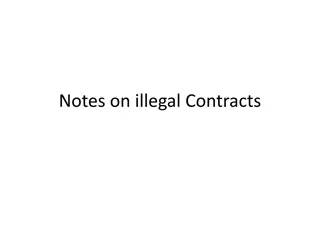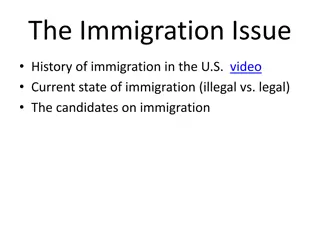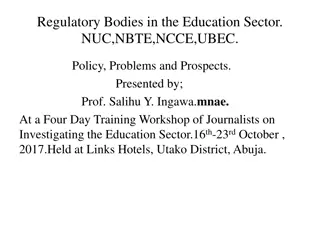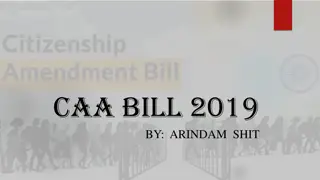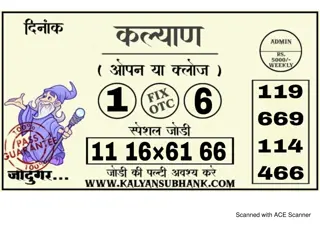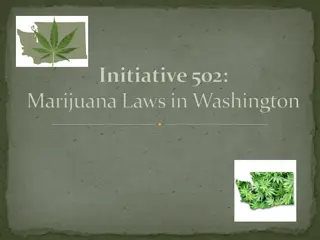
Satta Matka: Legal or Illegal? Understanding the Legal Aspects
Satta Matka is a well-known form of gambling that originated in India and has gained widespread popularity over the decades. Despite its deep cultural roots and the thrill it provides to its players, the legality of Satta Matka has always been a topi
Download Presentation

Please find below an Image/Link to download the presentation.
The content on the website is provided AS IS for your information and personal use only. It may not be sold, licensed, or shared on other websites without obtaining consent from the author. If you encounter any issues during the download, it is possible that the publisher has removed the file from their server.
You are allowed to download the files provided on this website for personal or commercial use, subject to the condition that they are used lawfully. All files are the property of their respective owners.
The content on the website is provided AS IS for your information and personal use only. It may not be sold, licensed, or shared on other websites without obtaining consent from the author.
E N D
Presentation Transcript
Satta Matka: Legal or Illegal? Understanding the Legal Aspects Satta Matka is a well-known form of gambling that originated in India and has gained widespread popularity over the decades. Despite its deep cultural roots and the thrill it provides to its players, the legality of Satta Matka has always been a topic of controversy and confusion. With laws varying from state to state and a complex legal framework governing gambling in India, understanding whether Satta Matka is legal or illegal requires a closer look at the historical context, current laws, and the grey areas that continue to exist. What is Satta Matka? Satta Matka originated in the 1960s, initially as a lottery game based on the opening and closing rates of cotton traded on the New York Cotton Exchange. Over time, it evolved into a number-based betting game where players choose numbers to bet on, and if their chosen numbers are selected, they win. The game gained immense popularity due to its simplicity and the possibility of winning large sums of money with a small investment. The Historical Legal Context of Satta Matka The legal standing of Satta Matka has always been in a grey area, largely because of its association with gambling. The Public Gambling Act of 1867, a colonial-era law, prohibits the running or being in charge of a public gambling house. This act, however, doesn't specifically mention Satta Matka, which leaves some ambiguity. Under this act, most forms of gambling, except lotteries and horse racing, were banned. Satta Matka flourished in the 1960s and 1970s, with Mumbai becoming the hub of this gambling practice. Despite being illegal, the game was popular among people from all walks of life. The government and law enforcement agencies cracked down on Satta Matka operators, but the game continued to thrive underground, with operations becoming more clandestine. Is Satta Matka Legal or Illegal Today? In the present day, Satta Matka is generally considered illegal under Indian law. The Public Gambling Act of 1867 is still in force in many parts of the country, making most forms of gambling, including Satta Matka, illegal. However, the implementation and enforcement of this law vary widely across different states. In Maharashtra, where Satta Matka is most popular, the Bombay Prevention of Gambling Act, 1887, governs gambling activities. This law specifically prohibits the operation and participation
in gambling houses. As a result, anyone found running or participating in a Satta Matka operation could face legal action, including fines and imprisonment. Despite the strict laws, Satta Matka continues to operate, albeit in a more discreet manner. The advent of the internet has also led to the rise of online Satta Matka, where players can place bets anonymously. However, these online platforms operate in a legal grey area, as they often fall outside the jurisdiction of Indian law enforcement agencies. The Grey Area of Online Satta Matka The rise of the internet has brought Satta Matta matka into the digital realm, where it operates on various online platforms. These websites often operate from jurisdictions outside India, making it challenging for Indian authorities to regulate or shut them down. As a result, online Satta Matka exists in a legal grey area. The Information Technology Act of 2000 governs online activities in India, but it doesn't specifically address online gambling. This loophole allows online Satta Matka operators to function without much interference. However, participating in online Satta Matka still carries risks, as Indian players could be prosecuted under the Public Gambling Act if caught. Legal Consequences of Playing Satta Matka Playing Satta Matka in India, whether offline or online, can have serious legal consequences. Under the Public Gambling Act of 1867, individuals found guilty of participating in gambling activities can face fines or imprisonment. The exact penalties vary depending on the state, as each state in India has the authority to enact its own laws regarding gambling. For instance, in Maharashtra, being caught participating in Satta Matka could result in a fine of up to 200 or imprisonment for up to three months. The severity of the punishment depends on the individual's role in the operation, with organizers facing harsher penalties. Additionally, law enforcement agencies are known to conduct raids on suspected Satta Matka operations, leading to the arrest of individuals involved. These raids can have significant social and financial repercussions for those caught, making participation in Satta Matka a risky endeavor. The Future of Satta Matka and Its Legal Status The future of Satta Matka in India remains uncertain. While the government has shown interest in regulating and legalizing some forms of gambling to boost revenue, Satta Matka has yet to be officially addressed. Legalizing Satta Matka could lead to greater control over the industry, ensuring that operations are conducted fairly and transparently while generating tax revenue for the government.
Until such changes occur, SattaMatka will likely continue to exist in its current form, operating underground or online in a legal grey area. Players should be aware of the risks involved, both legally and financially, and proceed with caution. Conclusion In conclusion, Satta Matka remains illegal in most parts of India, governed by the Public Gambling Act of 1867 and various state-specific laws. While online Satta Matka operates in a legal grey area, participating in such activities still carries significant risks. The legal status of Satta Matka is unlikely to change in the near future, so those interested in playing should be fully aware of the potential legal consequences. As always, it is advisable to stay informed and exercise caution when engaging in any form of gambling.







